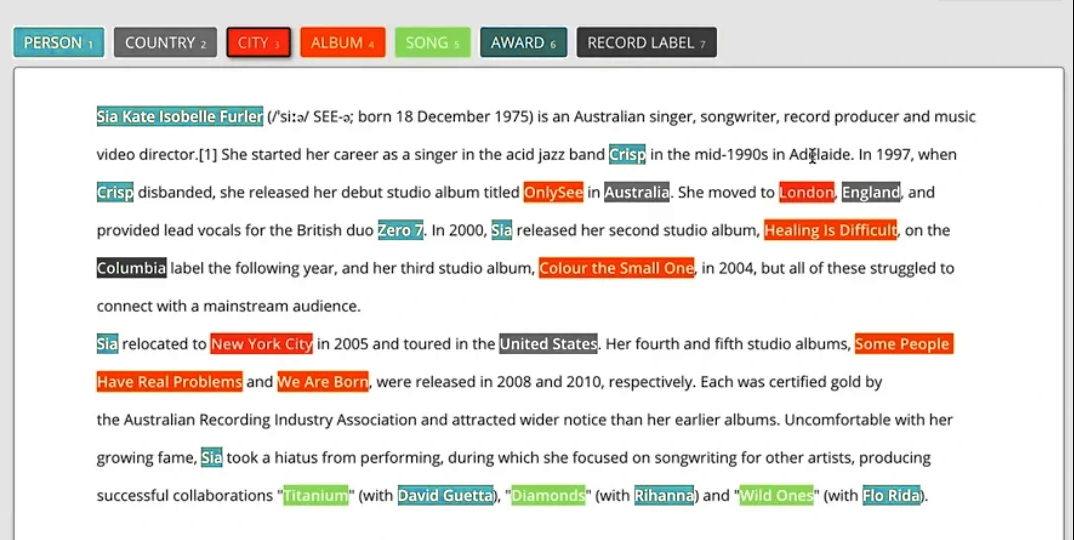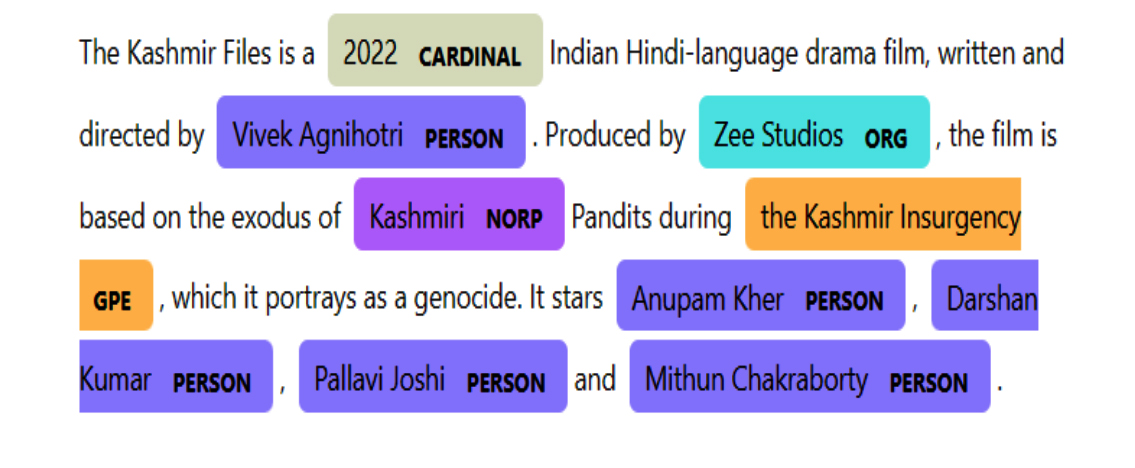Text Data Annotation: Unlocking High-Quality Data for AI and Machine Learning
Artificial Intelligence (AI) and machine learning (ML) are rapidly transforming the technological landscape, powering everything from smart home devices to advanced medical diagnostics.
However, the efficiency and accuracy of these systems depend on one crucial component: high-quality, labeled data.
Text data annotation is a foundational process that makes unstructured data interpretable by machines, enabling models to learn from human language effectively.
In this article, we’ll dive deep into the essential elements of text data annotation, explore its applications, and understand why partnering with expert annotation services like Subul Data Annotation can significantly impact your AI projects.
What is Text Data Annotation?
Text data annotation is the process of labeling or tagging text with metadata to provide context and meaning that machine learning models can understand. The goal is to make unstructured text data accessible to machines, allowing algorithms to interpret complex language, identify key patterns, and respond to human language inputs effectively. Annotation tasks can range from simple tasks like labeling keywords to advanced techniques like sentiment tagging, intent recognition, and named entity recognition.
For example, in a customer support scenario, annotating words such as “refund,” “cancel,” or “complaint” allows AI systems to understand the underlying user intent, route inquiries appropriately, or even provide automated responses. High-quality annotation is especially valuable for Natural Language Processing (NLP), which enables applications in sentiment analysis, language translation, chatbots, and voice recognition systems.
Importance of Text Data Annotation in Modern AI

Text data annotation is critical for accurate AI and ML models that interact with or process human language. Properly annotated text data helps models to differentiate between expressions, tone, and even nuances of emotion in the text. High-quality annotations lead to smarter, more intuitive AI, which can improve the customer experience, streamline business operations, and enhance analytics capabilities.
Some key reasons why text data annotation is essential include:
- Enhanced Model Performance: Annotated data refines models, reducing errors and enabling them to respond accurately to human queries.
- Better User Experience: Well-trained models power applications like chatbots, virtual assistants, and recommendation engines that enhance user engagement and satisfaction.
- Business Insights: Text data annotation is valuable for mining customer feedback, understanding market sentiment, and making data-driven business decisions.
How Text Data Annotation Works

The process of text data annotation generally follows a systematic approach that ensures high-quality, consistent, and accurate labels across large datasets. Here’s a breakdown of each stage:
- Data Collection: Relevant text data, often from sources like social media, customer reviews, or internal documents, is compiled.
- Annotation Strategy: Annotators and project managers determine the type and complexity of annotation needed (e.g., entity tagging, sentiment analysis).
- Data Labeling: Text is annotated by human experts or specialized AI tools, marking keywords, phrases, or emotions relevant to the project.
- Quality Control and Validation: A multi-level quality assurance process is essential to ensure accuracy, consistency, and reliability.
- Model Training and Refinement: Annotated text data is fed into machine learning models, refining their performance over time.
With advancements in annotation tools, many processes are semi-automated, but expert human annotators remain critical for handling context-sensitive text and complex language structures.
Key Types of Data Annotation Services
While text annotation is crucial, data annotation services encompass other formats, each with specific applications and benefits. Below is an overview of the primary types of data annotation services:
Image Annotation Services
Image annotation services involve tagging or labeling elements in images to train computer vision models. This data type is fundamental for technologies like facial recognition, object detection, and autonomous vehicles. Annotated images allow AI systems to detect objects, understand spatial relationships, and make context-driven decisions.
Text Annotation Services
Text annotation services focus on tagging elements within text, enabling NLP and content analysis applications. These services are vital for search engines, chatbots, sentiment analysis, and translation tools, where accurately labeled text improves response accuracy and comprehension.
LiDAR Annotation
LiDAR annotation is used in autonomous driving, mapping, and geospatial analysis. LiDAR technology measures distances using laser light, creating detailed 3D representations. Annotating these data points allows autonomous systems to recognize objects, navigate environments, and avoid obstacles in real-time.
Audio Annotation Services
Audio annotation services enhance the capabilities of voice-controlled systems and voice recognition technologies. By tagging audio elements—such as speech, pauses, and intonation—AI models can process and interpret spoken language, making these systems more responsive and accurate in human interactions.
Major Methods in Text Data Annotation

Entity Recognition
In entity recognition, annotators identify specific elements within text, such as names, dates, organizations, or locations. This method is crucial for AI applications that need precise identification of entities, enabling models to perform tasks like document classification, knowledge extraction, and customer inquiry routing.
Sentiment Analysis
Sentiment analysis involves categorizing text based on emotions, attitudes, or opinions. This technique is extensively used in customer feedback analysis, social media monitoring, and market research. By understanding user sentiment, businesses can gain insights into customer satisfaction and public opinion, allowing them to make informed decisions.
Intent Annotation
Intent annotation labels text based on the purpose or intent of the user’s message, such as a question, command, or request. This technique is essential for conversational AI and chatbots, helping them recognize user intentions and respond appropriately.
Data Annotation Outsourcing: Benefits and Challenges
Data annotation is resource-intensive and often requires skilled personnel for quality output. As a result, many businesses choose to outsource their data annotation needs.
Why Outsource Data Annotation Services?
Outsourcing data annotation services offers several advantages:
- Cost Efficiency: Annotation outsourcing reduces overhead costs associated with hiring, training, and retaining in-house annotation teams.
- Scalability: External vendors can rapidly scale annotation efforts based on project needs, helping meet deadlines without compromising quality.
- Access to Expertise: Professional annotation providers like Subul Data Annotation employ skilled annotators who understand industry requirements, ensuring high-quality data.
Challenges in Data Annotation Outsourcing
While beneficial, outsourcing has its challenges. Here are a few common issues and solutions:
- Quality Control: Ensure the vendor has a robust quality assurance process to maintain data accuracy.
- Data Security: Outsourcing sensitive data requires strict adherence to data privacy standards.
- Communication: Clear communication channels are necessary to ensure that project specifications are followed accurately.
Choosing a reliable partner, such as Subul Data Annotation, mitigates these risks by implementing advanced quality control and security protocols.
Applications of Text Data Annotation in Industry

Healthcare and Biomedicine
In healthcare, text data annotation enables AI to process large volumes of clinical notes, research articles, and medical records. For example, annotating patient feedback helps identify common symptoms and improves diagnostic tools. Additionally, annotated medical texts aid in predictive analysis, supporting more accurate patient treatment plans.
E-commerce and Retail
Text annotation is extensively used in e-commerce to enhance product recommendations, automate customer service, and perform sentiment analysis on product reviews. By understanding customer preferences and patterns, retailers can tailor their offerings, streamline inventory management, and create a more personalized shopping experience.
Finance and Insurance
In the finance and insurance sectors, text data annotation helps AI models detect fraudulent activities, conduct sentiment analysis, and enhance customer engagement. By analyzing news sentiment, for instance, financial institutions can gauge market trends and anticipate potential investment risks.
Subul Data Annotation: Your Reliable Data Annotation Outsourcing Partner
Subul Data Annotation provides a full suite of data annotation outsourcing services, including text data annotation, image annotation services, audio annotation services, and LiDAR annotation. Our team is committed to delivering high-quality, accurate data to power your AI and machine learning models effectively.
Why Choose Subul for Text Data Annotation?
- Expertise and Precision: Our annotators undergo rigorous training, ensuring they understand project requirements and provide accurate, high-quality labels.
- Advanced Quality Control: With multiple stages of review, Subul maintains high accuracy and consistency across all annotated data.
- Customizable Solutions: Subul tailors annotation projects to meet your specific needs, ensuring that you get the best return on your investment.
Our Comprehensive Service Offerings
Subul’s services include text data annotation, image annotation service, audio annotation services, and LiDAR annotation for various industries. Whether you need entity tagging, image labeling, or audio segmentation, Subul provides customized solutions backed by quality and reliability.
How Subul Ensures Data Quality and Security
We use secure data-handling processes to protect sensitive information, adhering to stringent industry standards. Subul’s quality assurance process includes multiple review stages and automated checks to ensure data integrity and consistency.